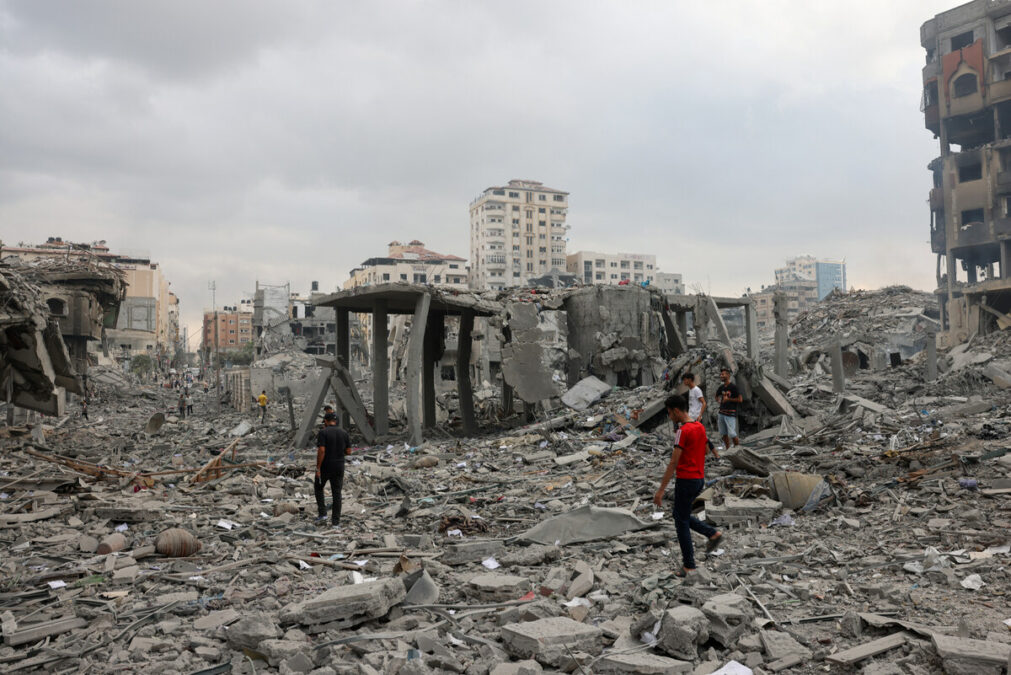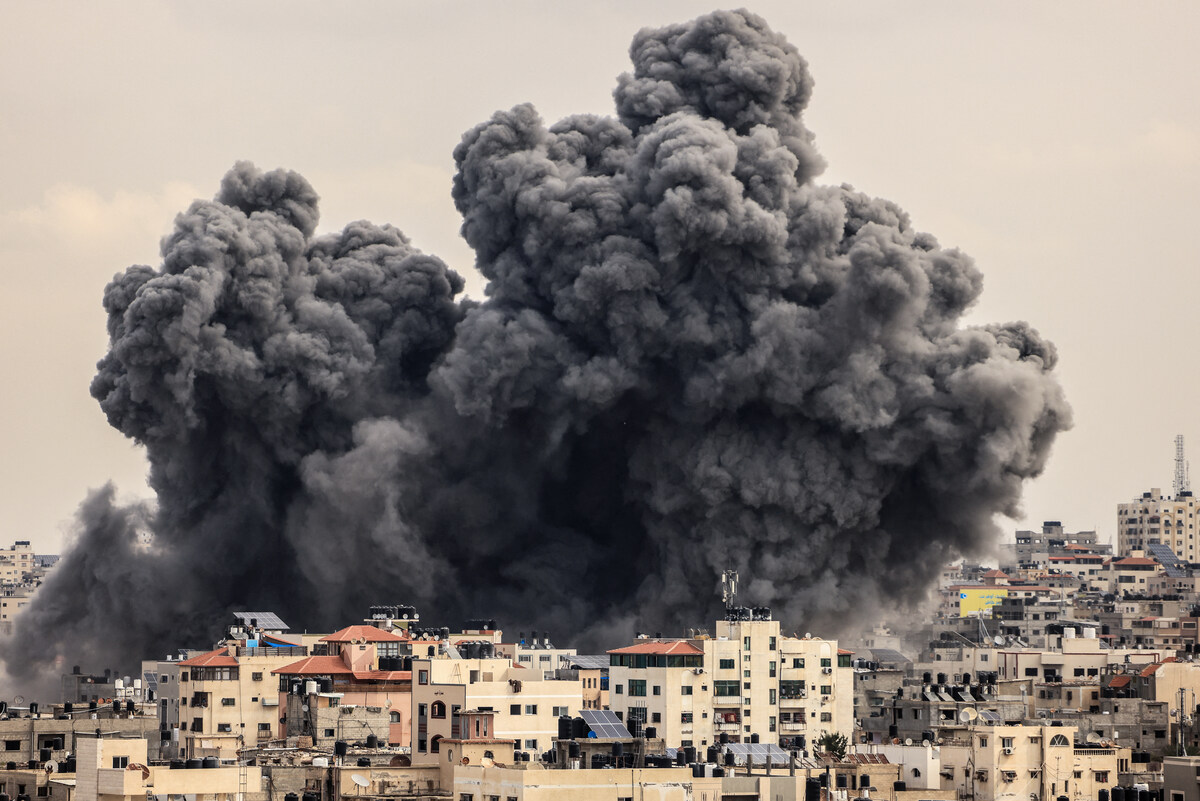Gaza City, Palestine – In the heart of the Middle East, a new war has erupted, sending shockwaves through global energy markets and challenging the economic stability of nations far beyond the region’s borders. The surprise attack by Hamas on Israel not only threatens regional peace but also casts a shadow over global economic dynamics, especially in the energy sector.
The conflict’s timing couldn’t be more critical. With the world grappling with economic challenges, the sudden escalation in the Middle East threatens to send oil prices skyrocketing. The situation is further complicated by Saudi Arabia’s position – the world’s top oil exporter. Recent reports suggested that Saudi leaders were considering boosting oil production to foster better relations with Israel. However, the recent violence might just change the calculus.
The geopolitical chessboard
The strategic implications of the conflict are vast. Some analysts believe that Hamas’ aggressive stance might be a calculated move to thwart any potential normalization of relations between Saudi Arabia and Israel. Such a normalization would be a strategic setback for Iran, a staunch opponent of Israel and a known supporter of Hamas. The recent attack has also reignited debates about Iran’s regional ambitions and its role in the ongoing conflict.
The conflict’s economic implications extend far beyond the Middle East. The recently announced India-Middle East-Europe Corridor (IMEC) project, a significant initiative connecting India to Europe via the Middle East, now stands at a crossroads. The corridor’s tentative route, which passes through several Middle Eastern nations, including Israel, might face challenges given the current situation. With the Middle East embroiled in conflict, the corridor’s future, touted as India’s answer to China’s Belt and Road Initiative, hangs in the balance.
Siege, bombardment, diplomacy and other important developments *) The European Union and Gulf Cooperation Council called for sustained aid for the Palestinian territories on Tuesday following concerns that it could be axed after the Hamas attack on Israel. "They stressed the importance of sustained financial support for UNRWA (the UN relief agency for Palestinians) and to continue humanitarian and development support for the Palestinians in the occupied territories," said a joint declaration read out by EU foreign policy chief Josep Borrell. *) Josep Borrell invites Israel's Foreign Minister, Eli Cohen, and his Palestinian counterpart, Riyad al-Maliki, to participate in the hybrid video and in-person talks. The EU has strongly condemned the attack by Hamas on Israel but has sent out mixed messages over the future of its development aid to the Palestinians. Brussels rowed back comments from neighborhood commissioner Oliver Varhelyi on Monday that the 27-nation bloc was immediately suspending "all payments" to the Palestinians. *) Israel said it recaptured Gaza border areas from Hamas militants as the war's death toll passed 3,000 on Tuesday. Prime Minister Benjamin Netanyahu has warned Israel's military campaign following Saturday's onslaught was only the start of a sustained war to destroy Hamas and "change the Middle East". The death toll in Israel has surged above 900, while Gaza officials have reported 765 people killed so far and more than 2,900 wounded. *) Around 1,500 bodies of Hamas fighters have been found in Israel around the Gaza Strip, Israeli military spokesman Richard Hecht *) Gaza's Rafah border crossing with Egypt, its only one that bypasses Israel, was hit by an Israeli air strike Tuesday for the third time in 24 hours, an AFP photographer reported. Witnesses said the strike hit the no-man's land between the Egyptian and Palestinian gates, damaging the hall on the Palestinian side. *A fresh salvo of rockets was fired from south Lebanon towards Israel on Tuesday, Lebanese state media said, an attack that drew retaliatory fire. It is the third day the border area has seen an exchange of fire and comes after Hamas militants launched an unprecedented multi-pronged attack on Israel's southern flank from the blockaded Gaza Strip on the weekend. *) Hamas said Monday it is not open to negotiating a prisoner exchange with Israel during hostilities. It holds as 150 individuals and threatened to start executing its hostages if Israel carried out air strikes in the Gaza Strip without prior warning to residents. Qatar is learnt to be spearheading efforts to negotiate an exchange of prisoners between Israel and Hamas. *) The World Health Organization called for a humanitarian corridor to be established into and out of the Gaza Strip. Israel has cut off the water supply, food, electricity and other essential supplies as it bombed targets in the crowded Palestinian enclave. The WHO said its supplies in the Gaza Strip were already running out, as it said patients in the territory's hospitals desperately needed those supplies. *) Dozens of foreigners have been killed, injured or taken hostage during a surprise attack on Israel by Hamas that has left 900 people dead in Israel. The information so far reveals that Thailand accounted for 18 of the dead foreigners, US (11), Nepal (10), Argentina (7), France (4), Ukraine, Russia and UK, two each, and Canada, Cambodia and Germany one each. Dozens of others are either missing or held hostage. *) Iran's Supreme leader Ayatollah Ali Khamenei denied any Iranian involvement in Hamas's shock weekend attack on Israel. "The supporters of the Zionist regime (Israel) and some people in the usurping regime have been spreading rumors over the past two or three days, including that Islamic Iran was behind this action. They are wrong," Khamenei said in a speech at a military academy. "Of course, we defend Palestine, we defend the struggles," he added, urging "the whole Islamic world" to "support the Palestinians." *) Four Palestinian journalists were killed in Israeli air strikes on Gaza City Tuesday, bringing the number of Palestinian journalists killed in the fighting since Saturday to eight. Among the deceased was the head of press union's committee of women journalists, Salam Khalil, who was killed along with her husband and children in Israeli bombing. *) More than 187,500 people have been displaced by massive Israeli bombardment, with most taking shelter in UN schools, the UN humanitarian agency OCHA said. "These new displacements add to some 3,000 Palestinians who were displaced from previous escalations. (AFP)
The conflict’s economic implications reverberate far beyond the confines of the Middle East. The recently unveiled India-Middle East-Europe Corridor (IMEC) project, a pivotal initiative bridging India to Europe via the Middle East, finds itself at a pivotal juncture. The corridor’s provisional route, traversing several Middle Eastern nations, including Israel, is now fraught with uncertainties due to the prevailing tensions. As the Middle East becomes increasingly mired in conflict, the future of the corridor, heralded as India’s counter to China’s Belt and Road Initiative, teeters precariously.
This corridor’s significance is underscored by the anticipated trade dynamics of the regions it connects. Combined exports from these regions were projected to constitute 44 per cent of global trade by 2030. Recent years had witnessed a surge in commercial agreements, notably the African Continental Free Trade Area, the Regional Comprehensive Economic Partnership, and the Belt and Road Initiative. These pacts had been instrumental in shaping the burgeoning high-growth trade corridors spanning Asia, Africa, and the Middle East, which are forecasted to exceed the global average growth by four percentage points.

The IMEC is not merely a conduit for goods; it embodies a transformative potential. It promises to unlock a plethora of opportunities, fortifying geopolitical and economic bonds across these regions. By bridging the aspirations of 1.4 billion people in India with the demands of hundreds of millions in Europe and the Middle East, the IMEC had the potential to herald a groundbreaking shift in economic and political collaboration.
As the world watches the Middle East with bated breath, the economic implications of the conflict become clearer. The potential spike in oil prices, the uncertainty surrounding major infrastructure projects like the IMEC, and the geopolitical maneuverings of major powers all point to a complex future. The Israel-Hamas conflict is not just a regional issue; its economic ripples might just shape global economic trajectories in the coming months.








